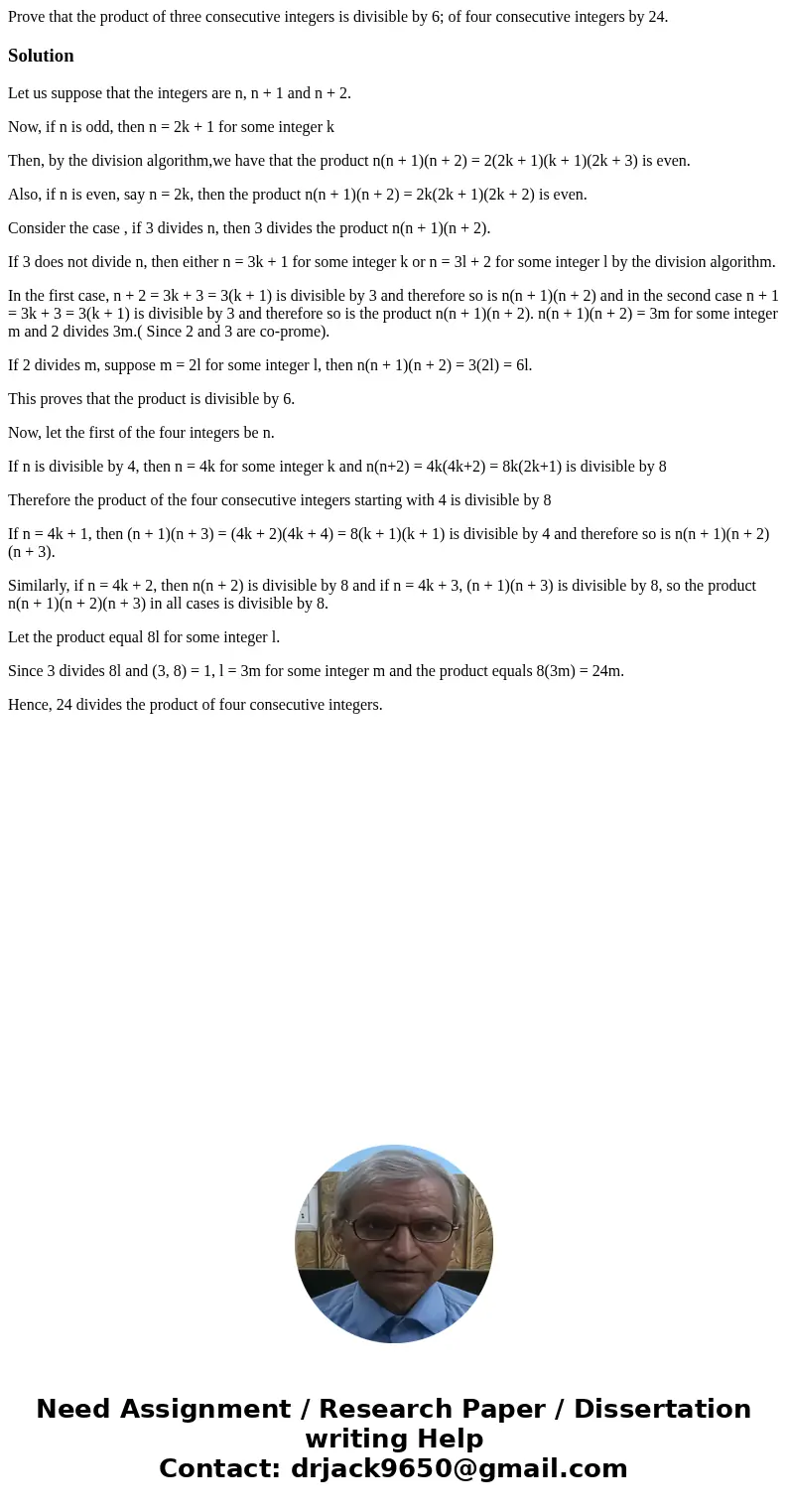Prove that the product of three consecutive integers is divi
Solution
Let us suppose that the integers are n, n + 1 and n + 2.
Now, if n is odd, then n = 2k + 1 for some integer k
Then, by the division algorithm,we have that the product n(n + 1)(n + 2) = 2(2k + 1)(k + 1)(2k + 3) is even.
Also, if n is even, say n = 2k, then the product n(n + 1)(n + 2) = 2k(2k + 1)(2k + 2) is even.
Consider the case , if 3 divides n, then 3 divides the product n(n + 1)(n + 2).
If 3 does not divide n, then either n = 3k + 1 for some integer k or n = 3l + 2 for some integer l by the division algorithm.
In the first case, n + 2 = 3k + 3 = 3(k + 1) is divisible by 3 and therefore so is n(n + 1)(n + 2) and in the second case n + 1 = 3k + 3 = 3(k + 1) is divisible by 3 and therefore so is the product n(n + 1)(n + 2). n(n + 1)(n + 2) = 3m for some integer m and 2 divides 3m.( Since 2 and 3 are co-prome).
If 2 divides m, suppose m = 2l for some integer l, then n(n + 1)(n + 2) = 3(2l) = 6l.
This proves that the product is divisible by 6.
Now, let the first of the four integers be n.
If n is divisible by 4, then n = 4k for some integer k and n(n+2) = 4k(4k+2) = 8k(2k+1) is divisible by 8
Therefore the product of the four consecutive integers starting with 4 is divisible by 8
If n = 4k + 1, then (n + 1)(n + 3) = (4k + 2)(4k + 4) = 8(k + 1)(k + 1) is divisible by 4 and therefore so is n(n + 1)(n + 2)(n + 3).
Similarly, if n = 4k + 2, then n(n + 2) is divisible by 8 and if n = 4k + 3, (n + 1)(n + 3) is divisible by 8, so the product n(n + 1)(n + 2)(n + 3) in all cases is divisible by 8.
Let the product equal 8l for some integer l.
Since 3 divides 8l and (3, 8) = 1, l = 3m for some integer m and the product equals 8(3m) = 24m.
Hence, 24 divides the product of four consecutive integers.

 Homework Sourse
Homework Sourse